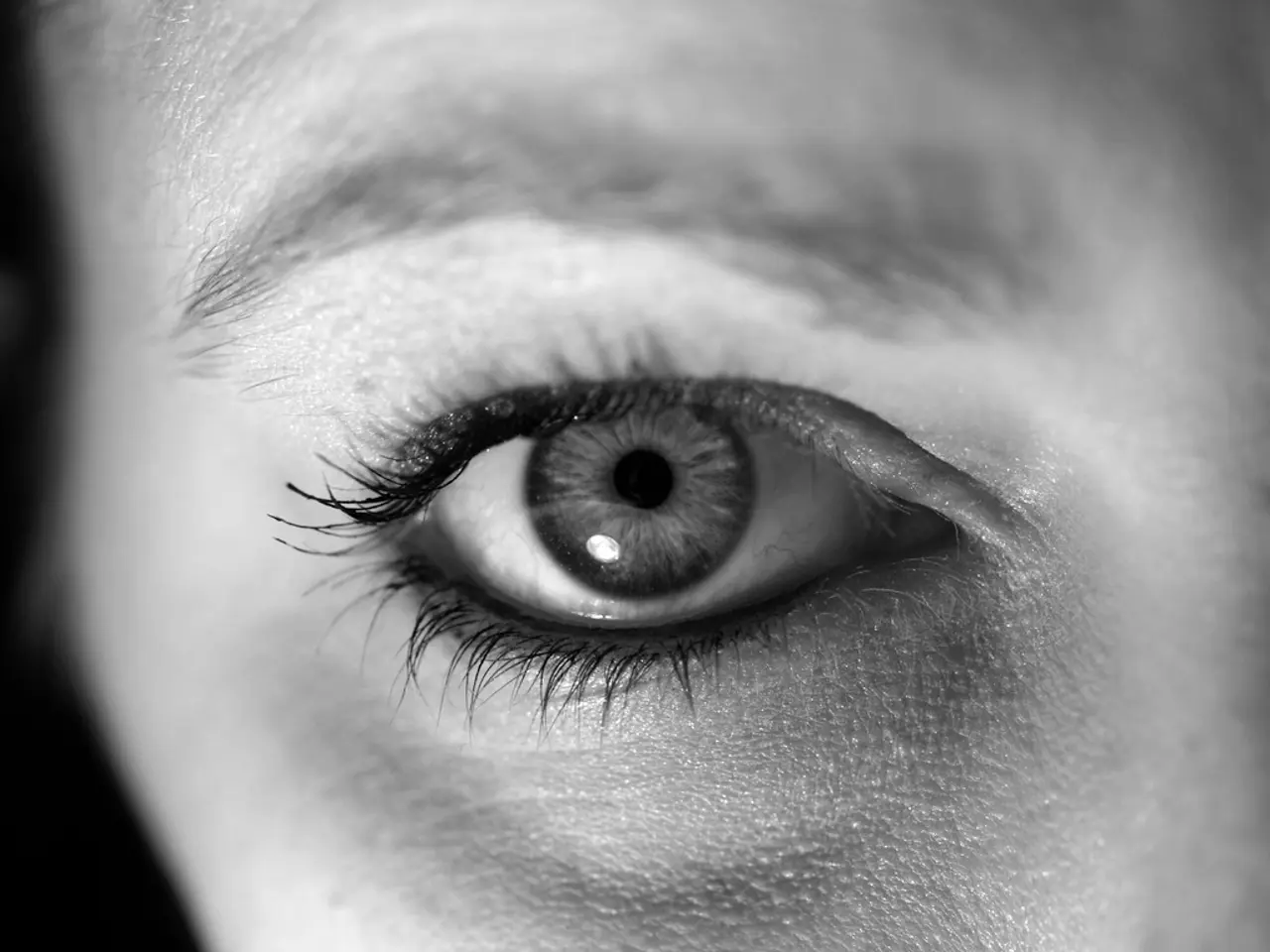Uncontrollable eyebrow twitching, also known as myokymia, can be caused by various factors such as stress, fatigue, or alcohol consumption. Treatment may involve relaxation techniques, Botox injections, or certain medications.
Eyebrow twitching can be a common and bothersome issue for many individuals, often triggered by everyday factors such as stress, caffeine consumption, eyestrain, or magnesium deficiency. However, in some cases, persistent or severe eyebrow twitching may indicate an underlying neurological or systemic condition that requires medical attention.
One such condition is Benign Essential Blepharospasm (BEB), a neurological disorder that causes involuntary eyelid and eyebrow muscle spasms. Twice as common in women as in men, BEB can lead to forceful eyelid closure or spasms. Treatment for BEB may involve botulinum toxin (Botox) injections to paralyze affected muscles and relieve spasms, although the effects of Botox wear off over time. In severe cases, surgery such as myectomy may be necessary.
Another condition linked to eyebrow twitching is Multiple Sclerosis (MS), a chronic neurological disorder that can present early symptoms including eye twitching, vision problems, muscle weakness, or coordination difficulties. Treatment for MS focuses on disease-modifying therapies to slow progression and symptom management through steroids, muscle relaxants, and physical therapy.
Hemifacial Spasm, a relatively rare neurological disorder, causes involuntary contractions affecting muscles on one side of the face, starting near the eyelid and eyebrow. If left untreated, it can lead to permanent stiffness. Causes include vascular compression of the facial nerve, and treatments include botulinum toxin injections and, in some cases, microvascular decompression surgery to relieve nerve compression.
Tic Disorders, including Tourette Syndrome, can cause repetitive blinking or twitching around the eyes and eyebrows. These disorders often coexist with allergic conjunctivitis or dry eye disease, which exacerbate symptoms. Treatment involves managing underlying allergic conditions and tic disorder therapies such as behavioral interventions and medications like antipsychotics or alpha-2 agonists.
Allergies causing eye irritation can also lead to twitching, treatable with antihistamines or allergy management. Medication side effects from antidepressants, antihistamines, or blood pressure drugs can cause muscle twitching; adjusting medication under medical supervision may help. Eye strain from prolonged screen time contributes to twitching; managing screen use, using artificial tears, and taking breaks reduces symptoms.
For persistent or severe eyebrow twitching, especially when accompanied by other neurological symptoms, consulting a healthcare professional for an accurate diagnosis and tailored treatment plan is essential. It is important to remember that while everyday factors may cause occasional twitching, long-term disorders often require medical evaluation for an accurate diagnosis and treatment.
**Note:** For a more detailed overview of these disorders and their possible treatments, please refer to the following table:
| Disorder | Characteristics | Possible Treatments | |-----------------------------|-----------------------------------------------------|-----------------------------------------------------| | Benign Essential Blepharospasm | Involuntary eyelid and eyebrow muscle spasms | Botox injections, myectomy (in severe cases) | | Multiple Sclerosis | Eye twitching with neurological symptoms | Disease-modifying drugs, muscle relaxants, physical therapy | | Hemifacial Spasm | Unilateral facial muscle twitching, nerve compression| Botox, microvascular decompression surgery | | Tic Disorders | Twitching linked to tics, often with allergies | Allergy treatment, behavioral therapy, medications |
- Sclerosis, a neurological disorder like Multiple Sclerosis (MS), can cause early symptoms including eye twitching and vision problems.
- Predictive, ongoing eyebrow twitching may indicate an underlying neurological or systemic condition, such as colitis, psoriasis, dermatitis, or cerebral palsy.
- Tired individuals might experience an increased risk of developing eye twitching due to fatigue, a common symptom observed in HIV patients.
- Spondylitis, a type of arthritis, can cause symptoms that might affect eye health and lead to twitching.
- Migraine patients often report symptoms related to eye-health and dermatitis, adding to the discomfort of their condition.
- Multiple Sclerosis, Atopic Dermatitis, Ulcerative Colitis, and Ankylosing Spondylitis are all medical-conditions linked to health-and-wellness issues, including fitness-and-exercise, mental-health, skin-care, and nutrition.
- A magnesium deficiency can cause more than just muscle twitching and contributing to the list of possible causes for persistent eyebrow twitching.
- HIV, asthma, and really any enduring medical condition might necessitate diligence in maintaining eye-health to avoid complications such as twitching or other symptoms.
- Science has discovered connections between some neurological disorders and eye-twitching, such as hemifacial spasm, which is caused by nerve compression in the eye and surrounding areas.
- Eye twitching in conjunction with skin-care problems like eczema or rosacea could point to an underlying condition, such as neurological disorders or dermatitis.
- Living with a condition like cerebral palsy, psoriasis, colitis, or multiple sclerosis requires regular medical attention to ensure proper mental-health management and to address any complaints such as eye-twitching or other related symptoms.
- Nutrition plays a significant role in maintaining optimal eye-health and could potentially affect the occurrence of twitching, especially when it comes to the intake of minerals like magnesium.
- It’s essential to consult with a healthcare professional for a proper diagnosis and treatment plan when dealing with persistent or severe eyebrow twitching, especially if accompanied by other symptoms or neurological disorders.
- Ignoring possible warning signs, like eye twitching, and not seeking medical advice could result in complications, hindering overall health-and-wellness, including mental-health, skin-care, and fitness-and-exercise.




